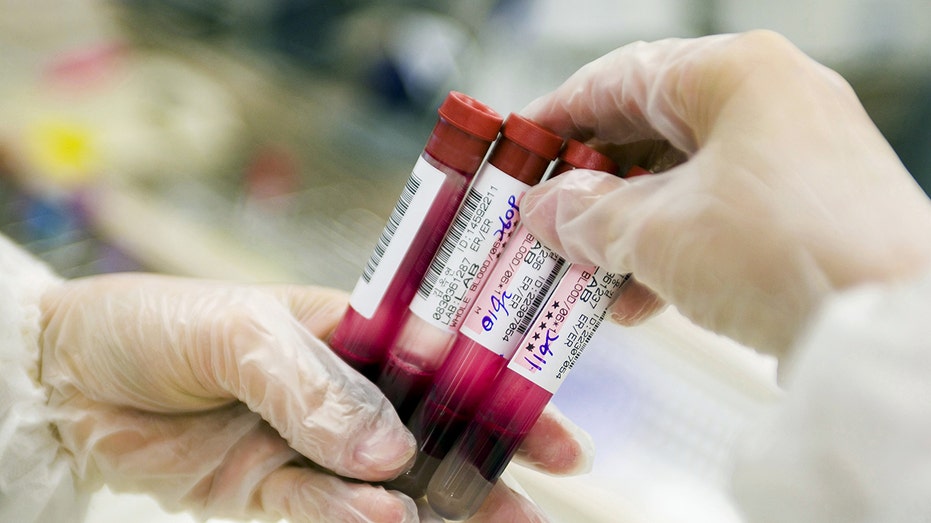Massachusetts medical diagnostic company execs accused of hiding lead test defect
U.S. attorney Rachael S. Rollins says, 'According to the CDC, there is no safe level of lead in the blood'
Trump indictment shows US justice system is 'terribly broken': Tom Fitton
Judicial Watch President Tom Fitton discusses whether the judge will impose a gag order on Trump that will prohibit him from talking about his case on the 2024 campaign trail.
Top executives of a Massachusetts-based medical device company face serious charges after being accused by the Department of Justice of allegedly knowing about and selling equipment that produced low lead test results for tens of thousands of patients.
Magellan Diagnostics, Inc. CEO Amy Winslow, COO Hossein Maleknia, and Director of Quality Assurance and Regulatory Affairs Reba Daoust were charged this week with conspiracy to commit wire fraud, wire fraud, conspiracy to defraud an agency of the United States, and introducing misbranded medical devices into interstate commerce with intent to defraud and mislead.

Laboratory technician holding test tubes containing blood samples ((Photo by Universal Images Group via Getty Images) / Getty Images)
According to a press release from the DOJ, Magellan sold the LeadCare Ultra, LeadCare II and LeadCare Plus, which all detected lead levels and lead poisoning in blood using fingerstick or venous samples.
FOUNDER OF STUDENT LOAN ASSISTANCE STARTUP ARRESTED ON FRAUD CHARGES
LeadCare II used fingerstick samples, which the DOJ said accounted for over half of all blood lead tests in the U.S. from 2013-2017. The other two devices took venous samples.
An indictment brought against the executives claims they misled Magellan customers and the Food and Drug Administration, or FDA, about a malfunction that affected LeadCare devices when used to test venous blood samples.
By hiding the malfunction, the DOJ said, the defendants caused low lead test results for tens of thousands of children and other patients.

The Department of Justice emblem at the U.S. Attorney's Office for the Southern District of Florida in downtown Miami is pictured on Jan. 25, 2023. On Monday, April 3, Charlie Javice, the founder of Frank, a student loan assistance startup company th (D.A. Varela/Miami Herald via AP, File / AP Newsroom)
"According to the CDC, there is no safe level of lead in the blood," U.S. attorney Rachael S. Rollins said. "We alleged that these defendants deceived customers and the FDA about the reliability of medical tests that detected lead levels. By doing so, we assert that they endangered the health and lives of incredibly vulnerable victims."
JOHNSON & JOHNSON TO PAY $8.9B TO RESOLVE CLAIMS BABY POWDER, TALC PRODUCTS CAUSED CANCER
The indictment alleges the defendants first learned about the LeadCare Ultra malfunction in June 2013. However, they allegedly released the product into the market in December 2013 without telling customers or the FDA about the malfunction that produced low test results.
After the release, customers noticed the malfunction and complained about low results.
Court documents also accuse Winslow and Maleknia of positioning to sell Magellan, and had the malfunction be exposed, it could have put the sale in jeopardy.
One employee who was studying the malfunction was allegedly told by Winslow to stop because the company needed to maintain "plausible deniability."
After Magellan was purchased by Meridian Bioscience, Inc. for $66 million in March 2016, the defendants began to notify the FDA and customers about the LeadCare II malfunction.
Meridian Bioscience did not immediately respond to a request for comment on the matter.
GET FOX BUSINESS ON THE GO BY CLICKING HERE
The FDA found that the devices were not capable of producing accurate test samples, leading to a recall of all LeadCare devices using venous samples. The FDA also warned customers not to use the products.
If convicted, the charges of wire fraud and wire fraud conspiracy carry a sentence of up to 20 years and a find of up to $250,000; conspiracy to defraud an agency of the U.S. carries a sentence of up to five years in prison and a fine up to $250,000; and the introduction of misbranded medical devices carries a sentence up to three years in prison and a fine up to $250,000.





















